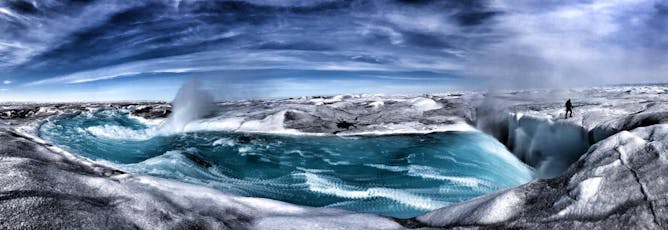|
The death of former Soviet leader Mikhail Gorbachev has prompted a huge outpouring of fond reflection in the west for a man widely seen as making the world a more peaceful place in the 1980s by playing a key role in bringing the cold war to an end. But his legacy is fiercely contested. Many in Russia blame him for economic chaos and the years of turmoil that followed. Indeed the roots of the current Kremlin regime and its war in Ukraine can be seen in the late Soviet period. In former Soviet states such as Georgia and Lithuania, meanwhile, memories of state killings that happened on Gorbachev’s watch remain fresh.
You can find our complete coverage of the passing of one of the 20th century’s most significant figures here, written, as ever, by leading academic researchers from around the world. More will follow.
And NASA will again attempt to launch its huge new rocket at the weekend, which is intended to usher in a new era of human exploration of deep space. But who was Artemis, the greek goddess the new lunar missions are named after? Marie-Claire Beaulieu of Tufts University explains.
|

Liberator, failed reformer or architect of Soviet demise?
Bryn Colton/Getty Images
Ronald Suny, University of Michigan
Mikhail Gorbachev died at 91 on Aug. 30, 2022. A historian of the Soviet era assesses his impact and the consequences of his failed attempts to reform state socialism.
|

A turbulent melt-river pours a million tons of water a day into a moulin, where it flows down through the ice to ultimately reach the ocean.
Ted Giffords
Alun Hubbard, University of Tromsø
A field glaciologist explains the changes scientists are now seeing.
|

Diana by Augustus Saint Gaudens, 1928, Metropolitan Museum of Art, New York.
Postdlf via Wikimedia Commons
Marie-Claire Beaulieu, Tufts University
A scholar of Greek mythology explains the naming of NASA’s missions after mythological figures and why the name Artemis is indicative of a more diverse era of space exploration.
|
|
|
-
Jack Burns, University of Colorado Boulder
When the Orion Crew Capsule orbits the Moon there will be no one on board. But the mission will mark a key step in bringing humans back to Earth’s dusty sidekick.
-
Gauri Sharma, University of the Western Cape
A comparison of star-forming galaxies suggests, surprisingly, that dark matter and visible matter do interact – taking us closer to understanding what keeps the galaxies together.
-
Andrew King, The University of Melbourne
The flooding in Pakistan is the latest in a sequence of exceptional disasters in the Northern Hemisphere. How much is climate change to blame?
-
Stefan Wolff, University of Birmingham
Ukraine says it will push Russian troops out of the country. This offensive could be critical to that aim.
-
Lucie Beaulieu, Université Laval
The abundance, versatility and quality of seaweed from the St. Lawrence makes this resource a real asset for Québec. We must now integrate it into our kitchens.
-
Parwinder Kaur, The University of Western Australia
The smoky mouse was already fighting extinction when a devastating bushfire season decimated 90% of its habitat. Thankfully, all is not lost.
-
Gary Brickley, University of Brighton
Better knowledge of the right training strategies is one reason more athletes are continuing to compete longer than they used to.
-
MacIntosh Ross, Western University
The federal government has created a Sport Integrity Commissioner to help athletes dealing with abuse. But for change to be meaningful, third-party investigators must be part of the process.
|
|